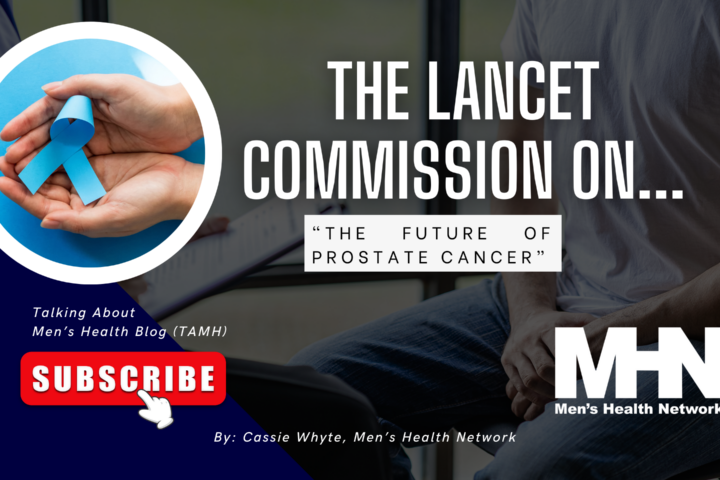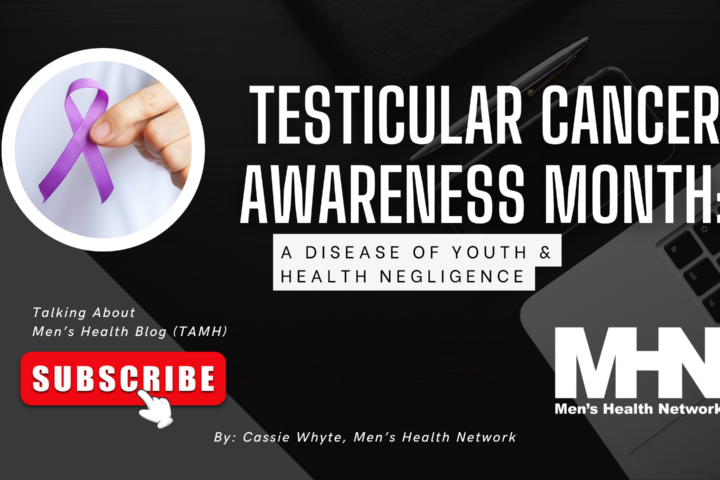June is Men’s Health Month, and the week culminating in Father’s Day, which this year falls on June 15, is Men’s Health Week. Created by an act of Congress in 1994, Men’s Health Week is a perfect time to remember the health issues facing men.
At PCORI, we’re funding a wide variety of research projects designed to help men answer important questions about their health and health care—not just this month but all year round. A number of these projects focus on issues relating to prostate cancer diagnosis and treatment. Others address diseases that, although not restricted to men, have major implications for their health, including cardiovascular disease and lung cancer—two of the leading causes of mortality in men.
When a man is diagnosed with one of these diseases, especially prostate cancer, the best treatment strategy may not be obvious. Both my grandfather and my father had prostate cancer when they were relatively young, so I remember my family going through this. My father had about five different doctors, and as many treatment options thrown at him. He didn’t know which option was the right one.
Just getting men in to the doctor’s office is important. Men don’t go for checkups as regularly as women do. Often, they don’t go at all unless a loved one forces them to. So clinicians have fewer chances to catch problems early.
What sorts of screening are most important? Young men should be tested for testicular cancer, sexually transmitted diseases, and HIV. Later, cholesterol should be checked, and every man in his 50s should have a conversation with his doctor about prostate and colon cancer.
In honor of Men’s Health Week, here is a sampling of PCORI-funded projects that bear on men’s health.
Prostate Cancer
Prostate cancer is the second-most-common cancer in American men, after skin cancer. It is also the second leading cause of cancer deaths in men, after lung cancer. Yet prostate cancer is often slow in its progress, and in some cases never causes a problem. So patients and doctors must carefully weigh the cancer’s threat against the side effects of treatment, which can include impotence or incontinence.
In 2011, the US Preventive Services Task Force recommended that, until a better test and better treatment options are available, healthy men should not be routinely screened for prostate cancer. The task force concluded that screening offers only a small potential benefit and significant potential harms from false positives, including unnecessary anxiety, complications from biopsies, and treatment that isn’t needed but may result in lasting harms.
That guideline, however, may not be right for everyone. Men with family histories of prostate cancer, as well as African-American men, are prone to developing forms of the disease that may require a more aggressive approach. PCORI is funding studies to help patients make these difficult healthcare choices.
- Although prostate cancer patients and their caregivers typically find much health information online, many still report not finding satisfactory answers to their questions. A project in Florida will test whether a specialized Apple iPad app, which allows users to interact with several evidence-based sources of information, leads to patients being better informed and more satisfied.
- A study in Washington, DC, is comparing ways to help patients decide when and how to use preventive services, especially when the guidelines about those services are controversial or unclear, as with prostate cancer.
- A project in Massachusetts seeks to facilitate more nuanced discussions between community health workers and vulnerable patients, including those with limited English proficiency, about the benefits and risks of screening.
Patients diagnosed with prostate cancer must decide among several approved treatment options—a difficult choice in many cases. Two PCORI studies aim to make that decision easier. They will generate new data about which kinds of patients fare best with which treatments, and making that information available to patients and healthcare providers.
- A project in Pennsylvania will develop an analytical process to help prostate cancer patients ascertain which treatment option, including watchful waiting, is best for them, given their individual characteristics and values, and test its effectiveness against usual care.
- A study in Tennessee will collect patient-reported information about quality of life, side effects, and cancer control from 3,691 prostate cancer patients for three years after their treatment to produce the most detailed data yet available about how effective and satisfactory the various options are and which work best for which subgroups of patients.
Cardiovascular Disease
Unlike prostate cancer, many of the health issues that face men aren’t gender-specific. Some, however, affect men differently, or disproportionately. For example, while heart disease is the leading killer of both men and women in the United States, it tends to affect men at a younger age than it does women.
- A project in California will create a large, internet-based, patient-powered research network of cardiac patients—connecting patients with each other and research studies with participants—to encourage patient-generated interventions for improving cardiovascular health.
- A study in Missouri will document the symptoms, functioning, and self-reported quality of life of 840 patients with peripheral artery disease, generating new information about which treatment options work best for which patient groups.
Lung Cancer
The leading cancer killer of both men and women in the United States, lung cancer affects men at higher rates than women, though the gap has been closing steadily since the 1980s.
- As screening programs increase, detection of early-stage lung cancers is projected to rise, leading to more treatment, and necessitating more post-treatment monitoring. A study in Illinois will create a tool to help patients and doctors arrive at a post-treatment surveillance strategy that is appropriate and effective given each patient’s personal characteristics, conditions, and preferences.
- Because smoking causes the majority of lung cancers, a project in Texas will help current smokers decide whether, in their own cases, the potential benefits of annual screening for lung cancer outweigh the risks, which include radiation exposure and false positives with risks associated with subsequent diagnostic procedures.
- Research in Kansas will examine whether long-term nicotine replacement therapy is superior, in terms of reduced exposure to smoke and ultimate quit rates, to the recommendation that a patient quit right away. The participants in this study are people with chronic obstructive pulmonary disease.
Men’s Health Month is celebrated with free screenings, health fairs, and awareness events nationwide. To find activities near you, click here. And let us know what questions you have about men’s health.



